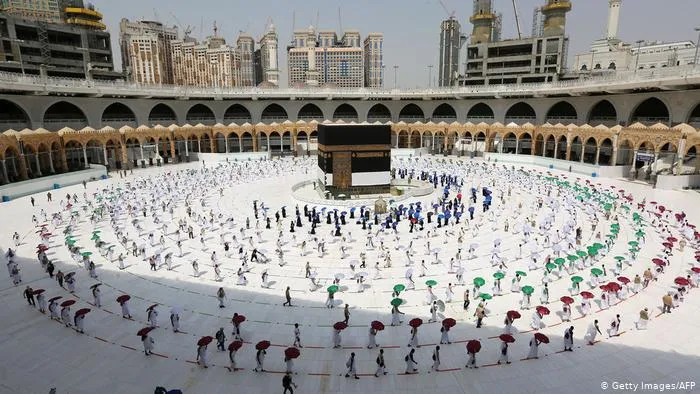In a bid to alleviate the financial burden on intending pilgrims, five Nigerian states—Kogi, Kebbi, Jigawa, Bauchi, and Kano—have announced subsidies for Hajj fares, benefitting a total of 10,260 pilgrims for the 2024 exercise. The combined subsidy amounts to a staggering N9,120,997,990 billion.
This move by the state governments follows the announcement by the National Hajj Commission of Nigeria (NAHCON) requiring already registered pilgrims to pay an additional sum of N1.9 million to cover the increased fares for the 2024 Hajj, reflecting current foreign exchange rates. With a deadline of March 28 for the payment, approximately 48,414 pilgrims had a mere 72 hours to either secure the funds or apply for refunds.
Governor Ahmed Ododo of Kogi State led the charge by promptly announcing full payments for its 460 pilgrims. Subsequently, Governor Abba Yusuf of Kano State announced a subsidy of N500,000 for each of its 2,906 pilgrims, followed by Governor Bala Mohammed of Bauchi State, who announced a subsidy of N959,000 for 2,290 pilgrims in the state. Jigawa and Kebbi states also extended subsidies of N1 million each for their 1,260 and 3,344 pilgrims, respectively.
Additionally, reports indicate that the Rivers State Government covered the entire fare for its intending pilgrims, while the Osun State Government provided undisclosed subsidies. These state-level interventions complement the N90 billion subsidy allegedly provided by the Federal Government to ease the financial burden on pilgrims.
Despite the subsidies, concerns have been raised about the states’ debt profiles, with a combined debt exceeding $382.9 million as of June 2023, according to the Debt Management Office. This financial strain raises questions about the sustainability of Hajj subsidies amidst mounting debt obligations.
Criticism has also emerged regarding the allocation of subsidies, with some arguing that government resources could be better allocated to address pressing needs such as education and transportation costs for the masses. The disparity in resource allocation has sparked debates about government priorities and the equitable distribution of public funds.
Meanwhile, the National Hajj Commission of Nigeria has announced that over 50,000 pilgrims have completed payments for the 2024 Hajj exercise under the government quota. This includes pilgrims from various states across the country, reflecting the diversity of participants in the annual pilgrimage.
